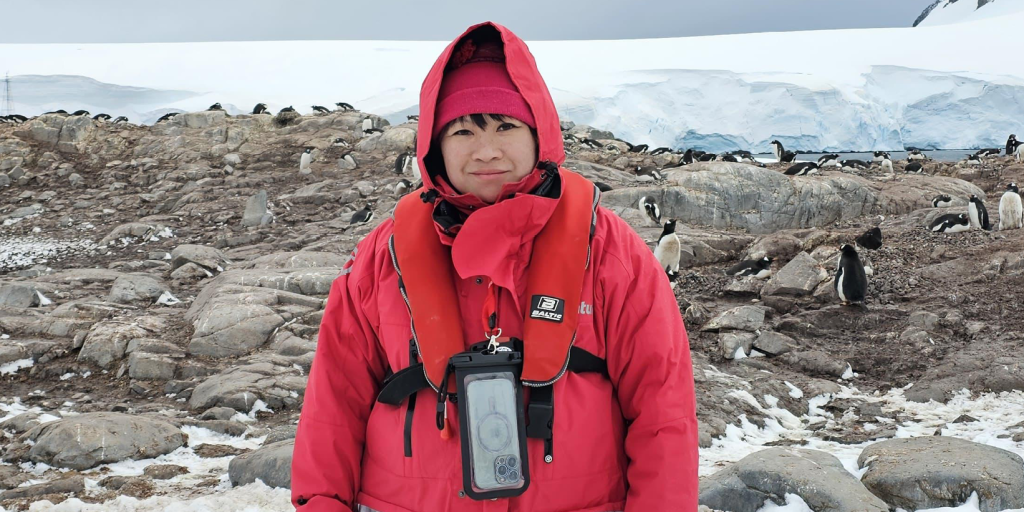Why managers need to understand systems thinking
Written by Dave Waller Tuesday 08 April 2025
When May Ho CMgr FCMI first set foot in Antarctica, on an exploration trip in 2024, she was stunned by the landscape and the sight of penguins and whales in their natural habitat.
“It’s a very special place,” she says. “That was one of the times I’ve felt closest to nature. All I remember is the beauty.”
It’s easy to imagine Antarctica as a world far removed from our modern lives in the West. Yet even the most remote parts of our planet are far closer to us than we may think.
Take the plight of Antarctic krill. As the scientists reminded May on her trip, this species is under threat because of farming for krill oil, a popular health supplement. Buying this product may be good for your wellbeing and the business you bought it from, but you may be harming a specific ocean ecosystem near the South Pole by doing so.
May was well qualified to receive such information. Having been an Antarctic Ambassador, gained a masters in sustainable leadership from the University of Cambridge, and since founded a sustainability consultancy, artwhich, she is a proponent of systems thinking, the active mapping of inter-connections between disparate activities.
Thinking beyond the organisation
Systems thinking is the framework that allows managers to step beyond linear cause and effect. When calculating carbon footprints, for example, it may mean looking past the organisation’s own emissions to examine and record its consumptions too – for example, how procurement affects emissions through the supply chain.
“It’s about embedding sustainability in whatever we’re doing, from operations to marketing,” says May. “But managers need to understand how a system works before they can introduce a change in the organisation. They even have to think beyond the organisation to consider the complex system around it.”
Systems thinking can support sustainability drives in many ways. It can help companies introduce circular economy concepts – for example, redesigning waste flow to create a closed loop, where no new waste is introduced back into the system. Or how regenerative practices can sit comfortably alongside the need to make a profit.
At Cambridge, May was exposed to work by Donella Meadows, an American environmental scientist and renowned proponent of systems thinking, who wrote about closing feedback loops and how interconnected parts exhibit dynamic behaviour.
Keep reading: May’s ‘a-ha’ moment
Register for Free Access
Not yet a Member, Subscriber or Friend? Register as a CMI Friend for free, and get access to this and many other exclusive resources, as well as weekly updates straight to your inbox.
You have successfully registered
As a CMI Friend, you now have access to whole range of CMI Friendship benefits.
Please login to the left to confirm your registration and access the article.
Article
Our extensive range of articles are designed to keep you in the loop with all the latest management and leadership best practice, research and news.
Members See More
CMI Members have access to thousands of online learning and CPD resources. Learn more about our membership benefits
Join The Community
CMI offers a variety of flexible membership solutions, tailored to your needs. Find out more and get involved in the CMI community today.
